
Annual Forbs Around Las Vegas, Vegetation Around Las Vegas
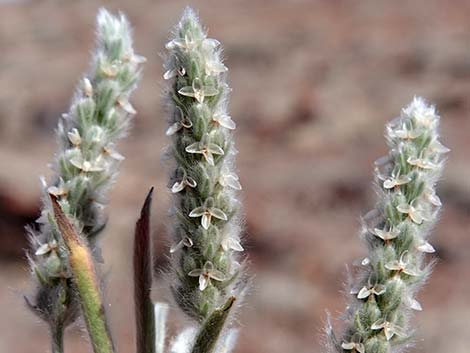 Flowers appear to be stacked vertically on the spike |
General: Woolly Plantain (Plantago patagonica) is a small annual forb that has 2-4(8) inch long, linear leaves that all grow from the base. The inflorescence is a short stem with a single, cylindrical mass of bracts harboring tiny whitish, 4-part flowers. The leaves and flowering stalks are covered with long hairs. On the flower stalk (peduncle), the hairs are stout and all angle up. On the leaves, the hairs are longer and go in all directions. A long bract sticks out from below each flower. A similar species, Desert Indianwheat, looks similar to Woolly Plantain, but Desert Indianwheat has hairs on the peduncle that go in all directions, and its bracts do not stick out from below each flower. Woolly Plantain an uncommon component of vegetation communities in dry, well-drained sandy and gravelly soils on desert flats and bajadas into the lower mountains from the Lower Sonoran (Creosote-Bursage Flats) life zone to the Upper Sonoran (Pinyon-Juniper Woodland) life zone. Around Las Vegas, look for Woolly Plantain everywhere in desert habitat, but look closely because it is hard to tell from the abundant Desert Indianwheat, with which it looks identical at a glance. Family: Plantain (Plantaginaceae) |
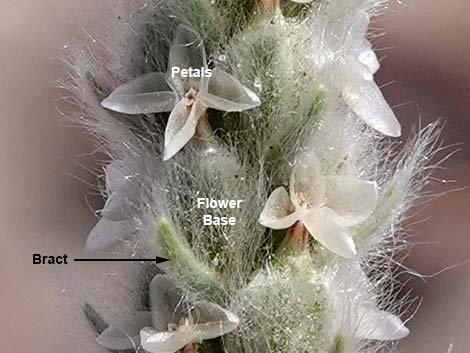 Bracts below each flower long and exserted |
Plant Form: Annual. Small tuft of leaves with short, upright flowering stalks Height: To about 6 inches. Stems: None (excluding flowering stalks) Leaves: Nearly linear to slightly oblong, entire, with long, lax hairs Flowers: Inflorescence: Peduncle (ungrooved) to about 6 inches with stiff hairs almost always ascending. Peduncle hairs more stout than those on the leaves. Flower spike to about 2.5 inches, cylindrical. Flower: Petals 4, small, corolla lobes spreading, to about 3 mm, bract long and exserted. Corolla tube glabrous. |
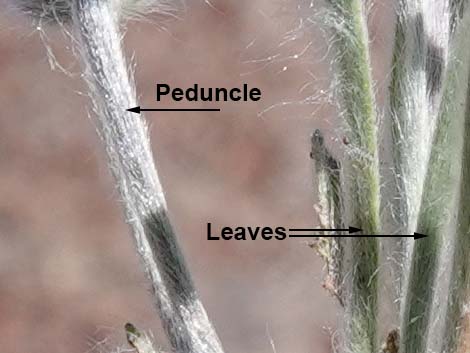 Peduncle hairs mostly ascending; more stout than leaf hairs |
Seeds: Seeds usually only 2, inner side deeply concave. Habitat: Sandy and rocky soils. Elevation: From about 1,500 to 7,000 ft. Distribution: Midwestern North America to the West Coast, southern Canada, south to central Mexico Comment: For Desert Tortoises, this is like candy -- they love it. For such a small plant, it produces relatively large seeds and provides an important food source for desert tortoise, desert iguana, and other vegetarian creatures. |
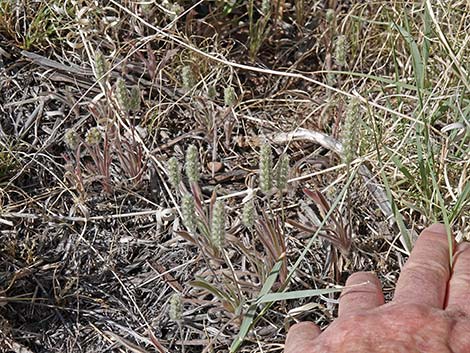 |
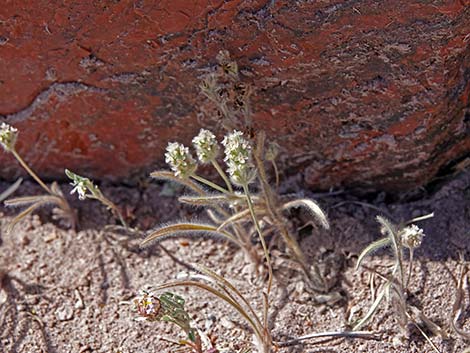 |
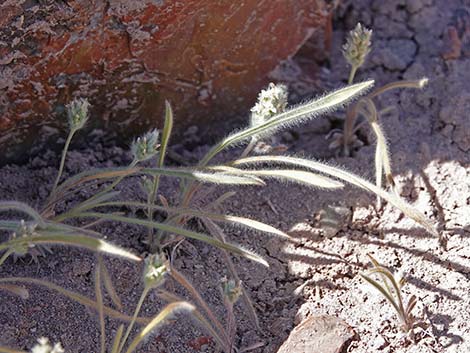 |
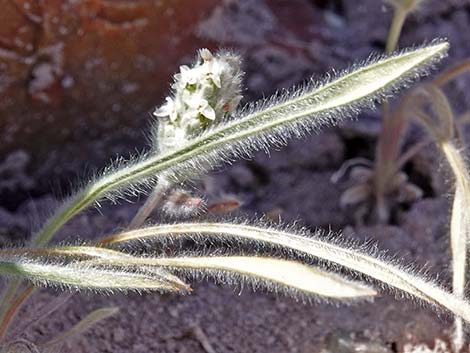 |
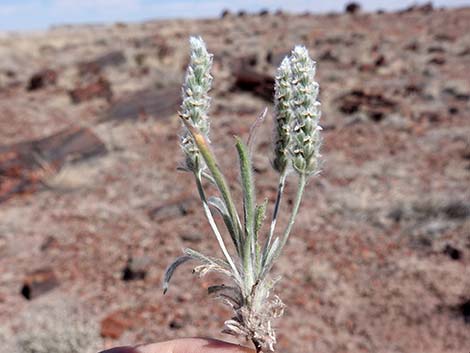 |
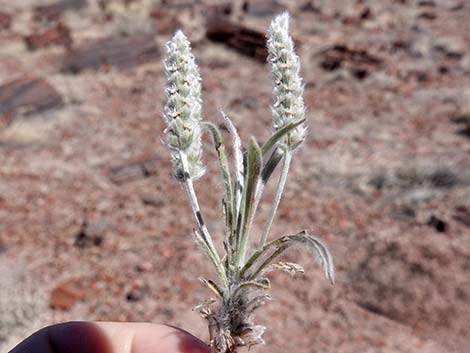 |
 |
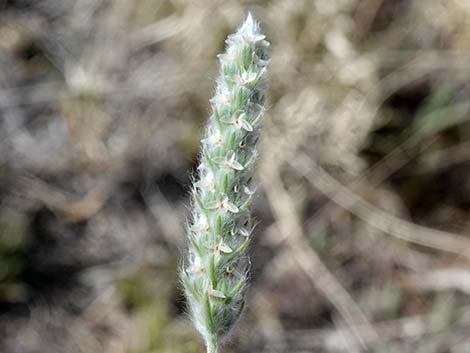 |
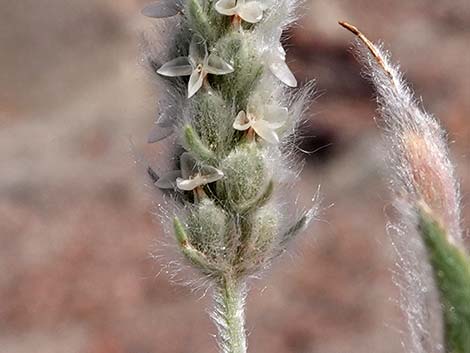 Bracts below each flower long and exserted |
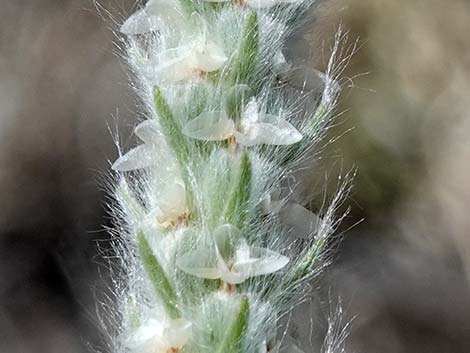 Bracts below each flower long and exserted |
Note: All distances, elevations, and other facts are approximate. Names generally follow the USDA database.
![]() ; Last updated 240727
; Last updated 240727
| All Annual Forbs | Plant Species Index | Glossary | Copyright, Conditions, Disclaimer | Home |